Special Report
The 10 Most Decorated War Heroes This Century
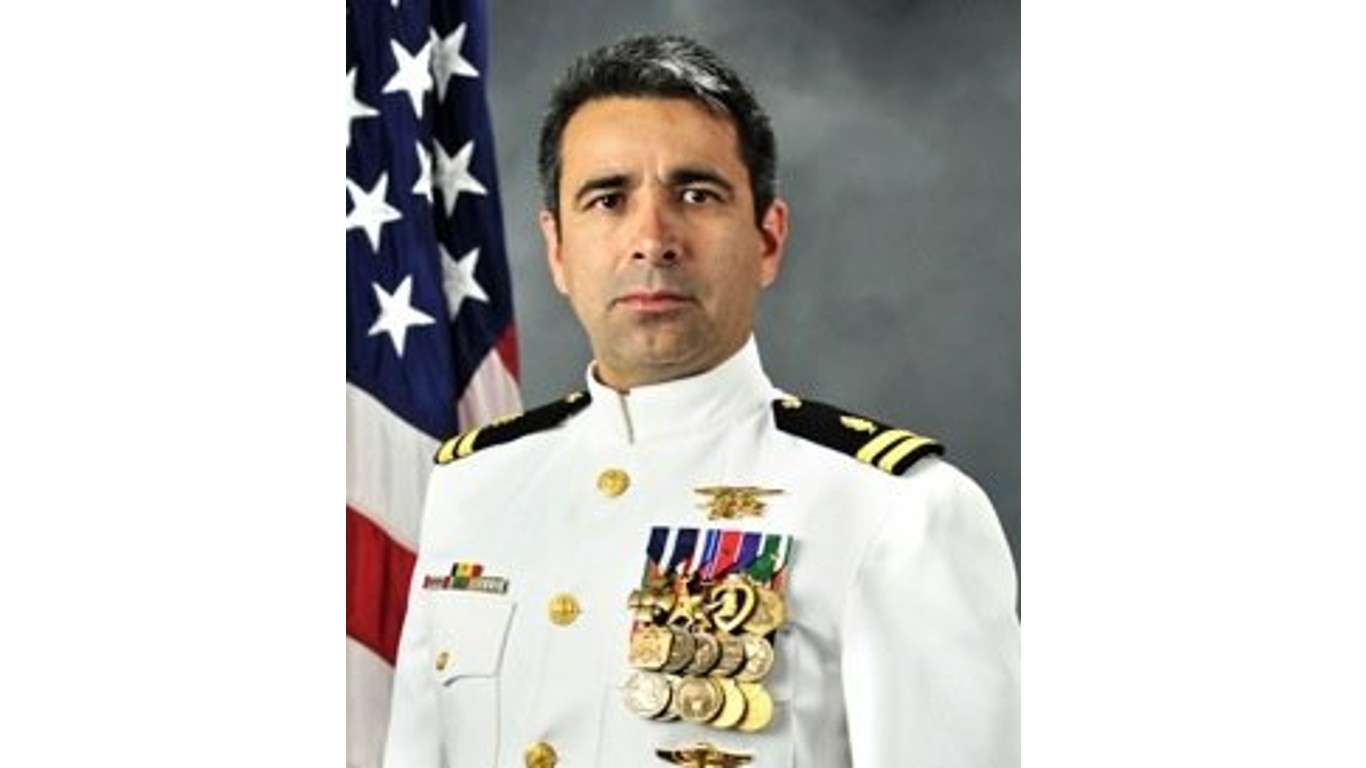
Published:
Last Updated:

The United States and its allies began what is officially known as the Global War on Terrorism in October 2001 when they attacked Afghanistan in the wake of the terror attacks in the U.S. Two years later, the the allies expanded the war into Iraq. The U.S. pulled out of Afghanistan in 2021 and has maintained a presence in Iraq. Over that 21-year span, American servicemen have distinguished themselves in combat in both those countries. (Here’s how every war in U.S. history ended.)
To compile a list of the most decorated American war heroes of the 21st century, 24/7 Tempo consulted reference material from the Department of Defense, Spec Ops Magazine, and the Congressional Medal of Honor Society. We only considered recipients of the Medal of Honor, the Silver Star, and the highest individual awards from three military branches – the Army’s Distinguished Service Cross, the Navy Cross, and the Air Force Cross.
On this list there are 10 men – representatives of the Army, Navy, and Air Force – who were each awarded two or more medals of valor while in combat. Some of them were wounded trying to protect their fellow injured service members, and two – Navy SEAL Michael Monsoor and Army corporal and medic Angelo Vaccaro – were slain in the line of duty. Monsoor is the only one on this list who was awarded the Medal of Honor, the nation’s highest military award.
Monsoor and Vaccaro are but two of the 5,364 military personnel who have died in the War on Terror as of Sept. 12, 2022. They and the others on this list join the honor roll of the most decorated war heroes in American history.
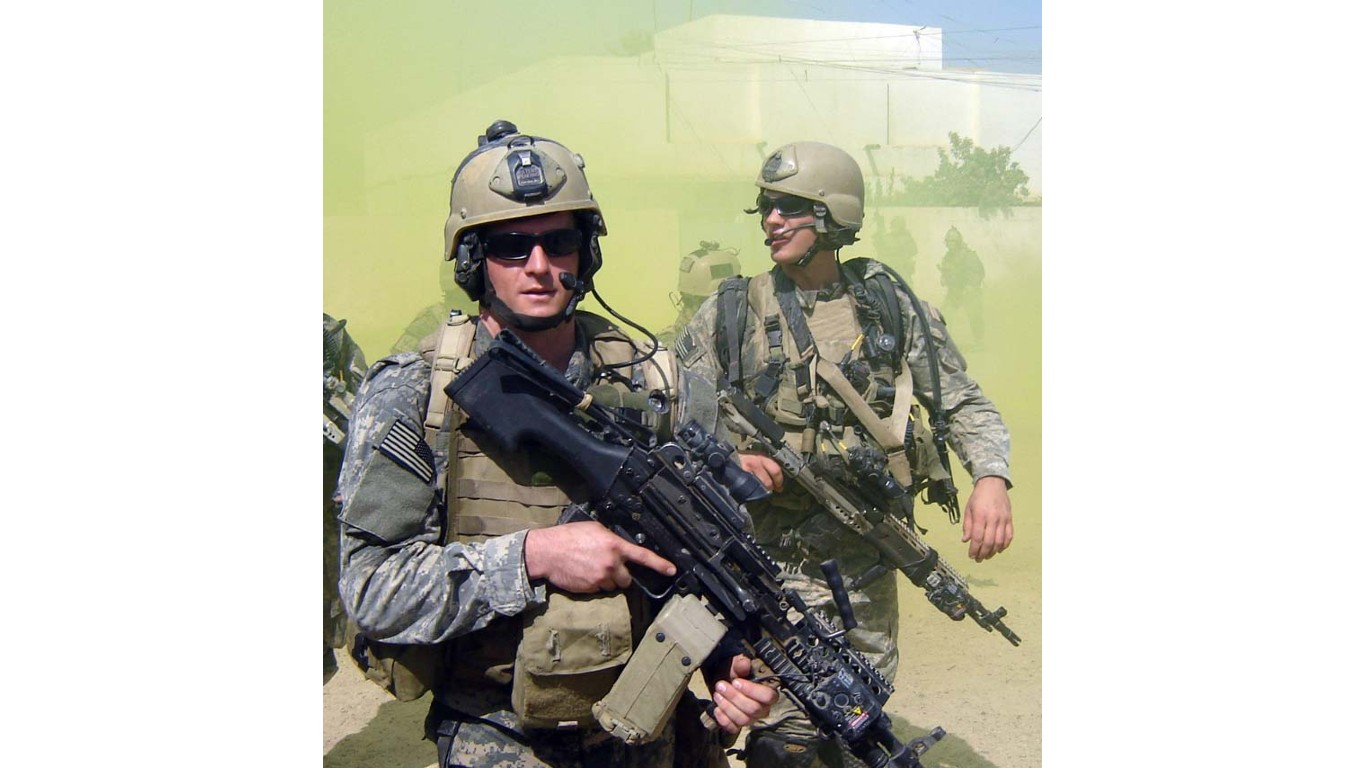
Michael Monsoor
> Rank: Master-at-Arms Second Class (SEAL)
> Military branch: Navy
> Served in: Iraq
> Medals of valor: Medal of Honor, Silver Star
Michael Monsoor of the Navy SEALs earned his medals posthumously for his actions in Iraq on Sept. 29, 2006. Monsoor was deployed with a Navy spec-ops task force as part of a sniper team on a rooftop in Ramadi, which was one of the most dangerous cities in Iraq at that time. Insurgents surrounded the sniper team shortly after dawn and attacked with rocket-propelled grenades and small-arms fire. A grenade hit Monsoor in the chest and landed in front of him and two other Navy SEALs. Monsoor threw himself onto the grenade to absorb the force of the explosion. He saved the two SEALs but not himself. He died from his wounds a half-hour later.
[in-text-ad]
David Cooper
> Rank: Chief Warrant Officer
> Military branch: Army
> Served in: Iraq
> Medals of valor: Distinguished Service Cross, Silver Star
Army Chief Warrant Officer David Cooper was flying a helicopter on Nov. 27, 2006, in central Iraq, leading a group of aviators in support of a ground-deployed spec-ops team as it moved toward a staging site in the open desert. When his wingman’s helicopter was disabled by a rocket-propelled grenade, Cooper stayed on to support the team protecting the crash area. Shortly after the helicopter was downed, enemy fighters swarmed the area and attacked the ground forces, who had no cover. To deflect attention from the ground troops, Cooper flew into enemy fire and attacked the fighters. When his ammunition was spent, Cooper landed near the crash site, and the ground troops helped him reload with the rounds from the downed helicopter. Cooper renewed the attack and the enemy fighters retreated. Cooper had been deployed to Afghanistan and Iraq 23 times during the War on Terror.

Mark L. Donald
> Rank: Lieutenant (SEAL)
> Military branch: Navy
> Served in: Afghanistan
> Medals of valor: Navy Cross, Silver Star
When Lt. Mark Donald’s convoy came under heavy fire from rocket-propelled grenades and small arms on Oct. 23, 2003, in Afghanistan, he sprang into action. The Navy SEAL returned fire while pulling a wounded Afghan soldier to safety. Donald, a combat medic, then grabbed a wounded Marine wedged behind the wheel of a truck. Even as bullets ripped his clothes, Donald continued to treat the Marine’s wounds. After evacuating some of the wounded, Donald went looking for other wounded soldiers while evading machine-gun fire. He provided medical treatment until all the wounded were evacuated. After he left the military, Donald became a public speaker. He also is the author of the book “Battle Ready: Memoir of a SEAL Warrior Medic.”
Erich Phillips
> Rank: Sergeant
> Military branch: Army
> Served in: Afghanistan
> Medals of valor: Distinguished Service Cross, Silver Star
Erich Phillips was a 23-year-old mortar platoon sergeant stationed at a mountainside outpost in Nuristan province in Afghanistan on the morning of Aug. 22, 2007, when insurgents launched a rocket attack against about two dozen members of his unit. The insurgent force was estimated to be three times their size and they almost overran the position. The platoon’s medic suffered a chest wound, and Phillips dragged him to safety. The unit fought off the attack, with half of them wounded in a three-hour battle, before A-10 Warthogs arrived and strafed the area to push back the enemy. Phillips received the Silver Star a year later for heroic actions in the same region of Afghanistan.
[in-text-ad-2]
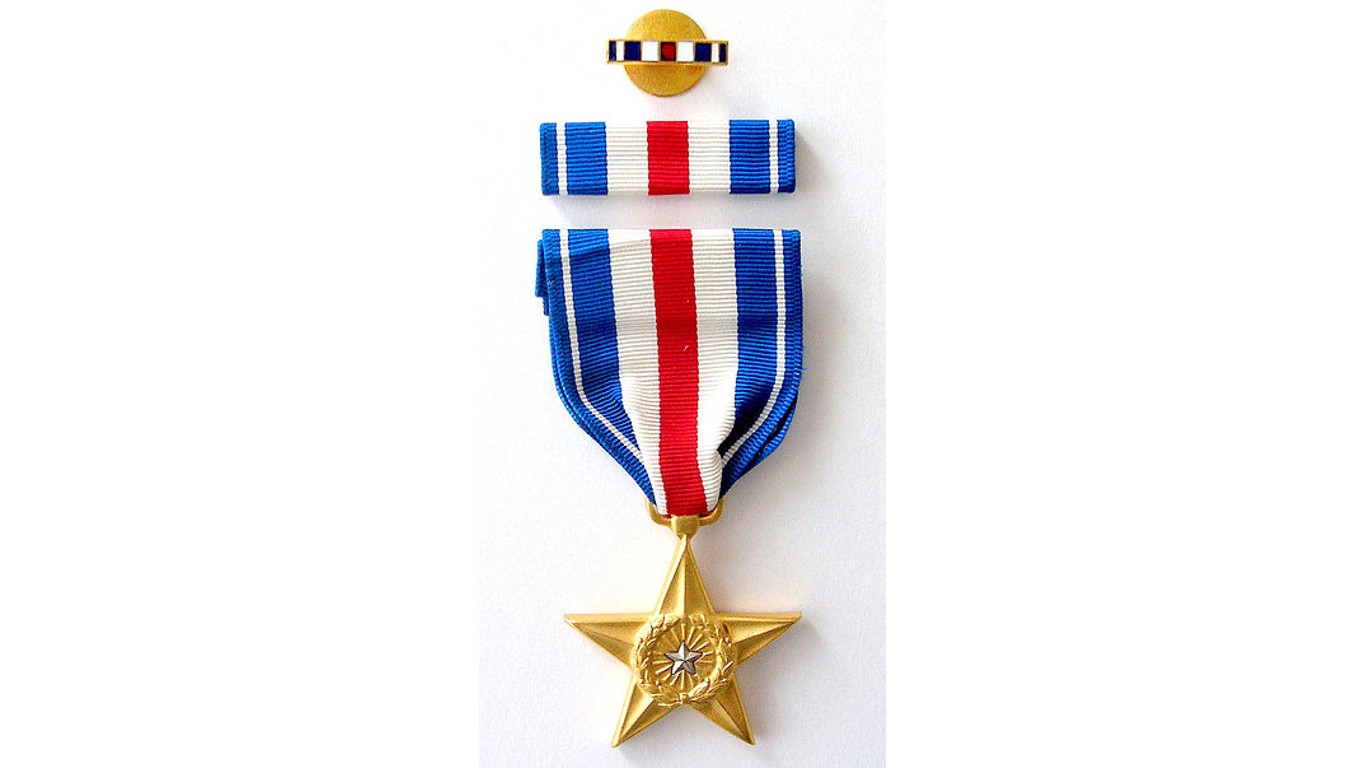
Paul D. Fiesel
> Rank: Master Sergeant
> Military branch: Army
> Served in: Afghanistan
> Medals of valor: Two Silver Stars
Army Master Sergeant Paul D. Fiesel earned two Silver Stars while serving in Afghanistan. He received his first one in December 2008 for leading a special-ops detachment and Afghan troops that relieved another special-ops team under fire from as many as 400 enemy fighters and helped withdraw wounded soldiers. He was awarded the second star following an engagement with the enemy in September 2011. Fiesel was on patrol with a spec-ops detachment when a four-man team from his unit came under heavy fire from enemy fighters armed with heavy machine guns and rocket-propelled grenades. He led another four-man group that attacked the enemy, and rescued the trapped U.S. soldiers.
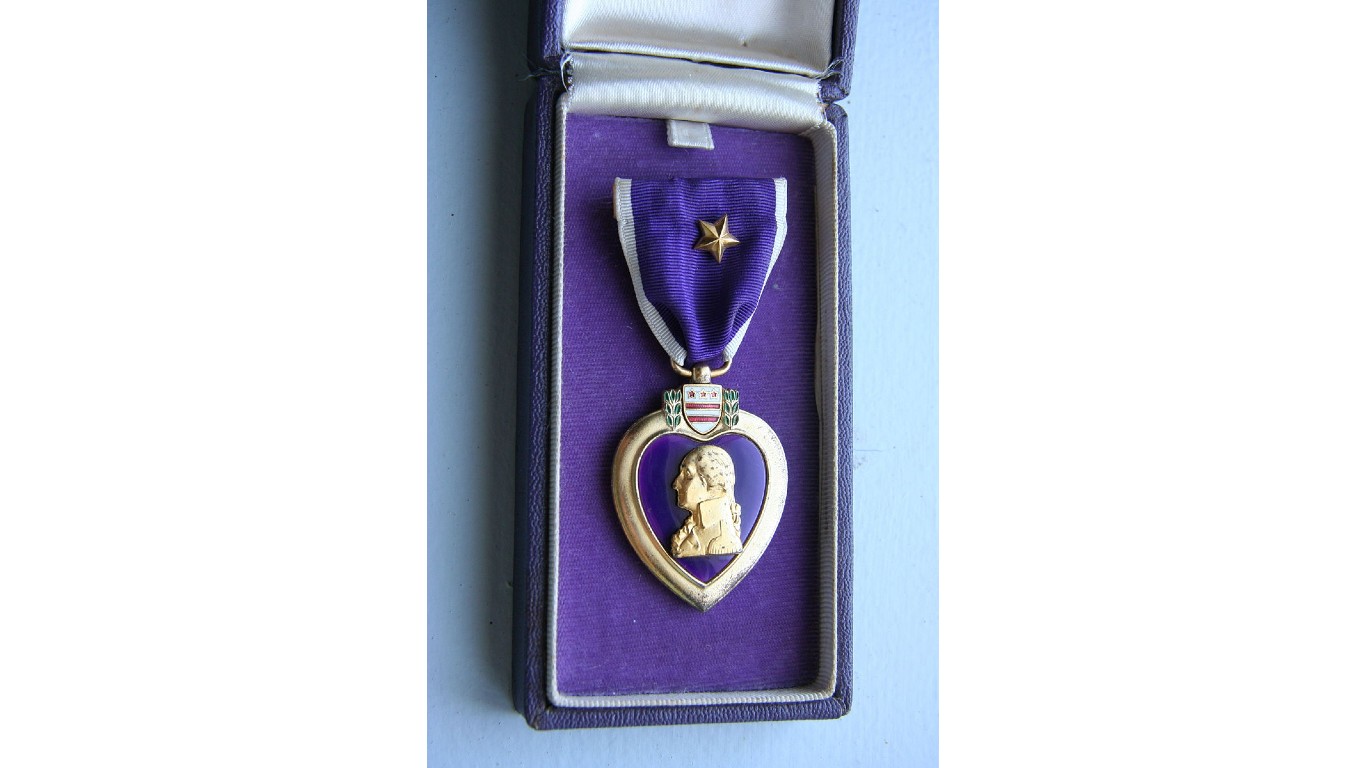
Angelo Vaccaro
> Rank: Corporal
> Military branch: Army
> Served in: Afghanistan
> Medals of valor: Two Silver Stars
Angelo Vaccaro was a line medic with the U.S. Army’s 10th Mountain Division, earning both Silver Stars while he was deployed in Afghanistan’s Kunar province. He received the awards while he was treating wounded soldiers under withering enemy fire. A few weeks after his actions earned him his second Silver Star, Corporal Vaccaro was killed when a rocket-propelled grenade struck his vehicle in October 2006 as he tried to rescue wounded soldiers. In previous evacuations of wounded soldiers, Vaccaro was awarded two Purple Hearts for wounds suffered during those operations.
[in-text-ad]
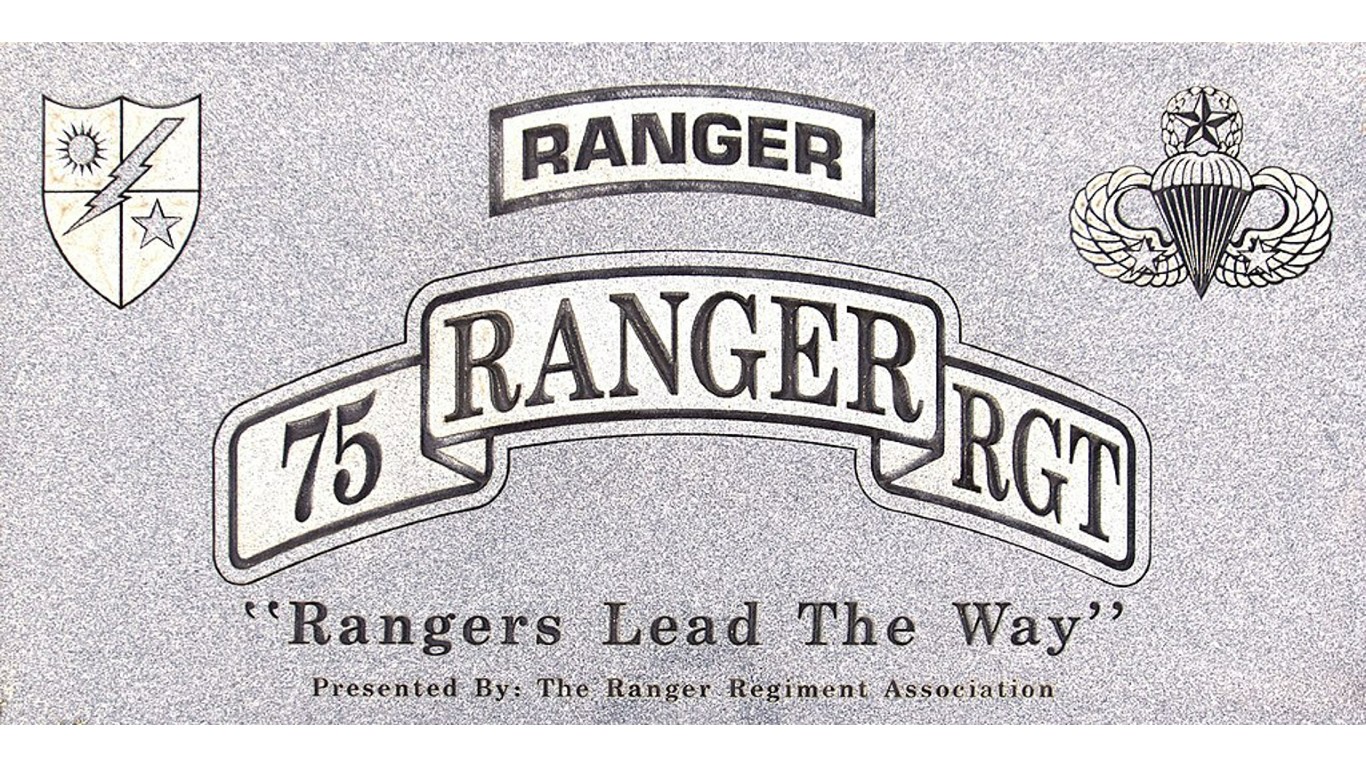
Kirk Foster
> Rank: Sergeant First Class
> Military branch: Army
> Served in: Iraq
> Medals of valor: Two Silver Stars
Kirk Foster was stationed with the U.S. Army’s 75th Ranger Regiment in Iraq. Foster would distinguish himself in October 2005 by earning two Silver Stars that month. According to the citation for the second medal, while under enemy attack from direct fire and grenades, Foster “led an assault on an insurgent stronghold.” According to the citation, “His heroic leadership, courage under fire, and aggressive spirit saved lives by eliminating the enemy threat to his fellow Rangers.”
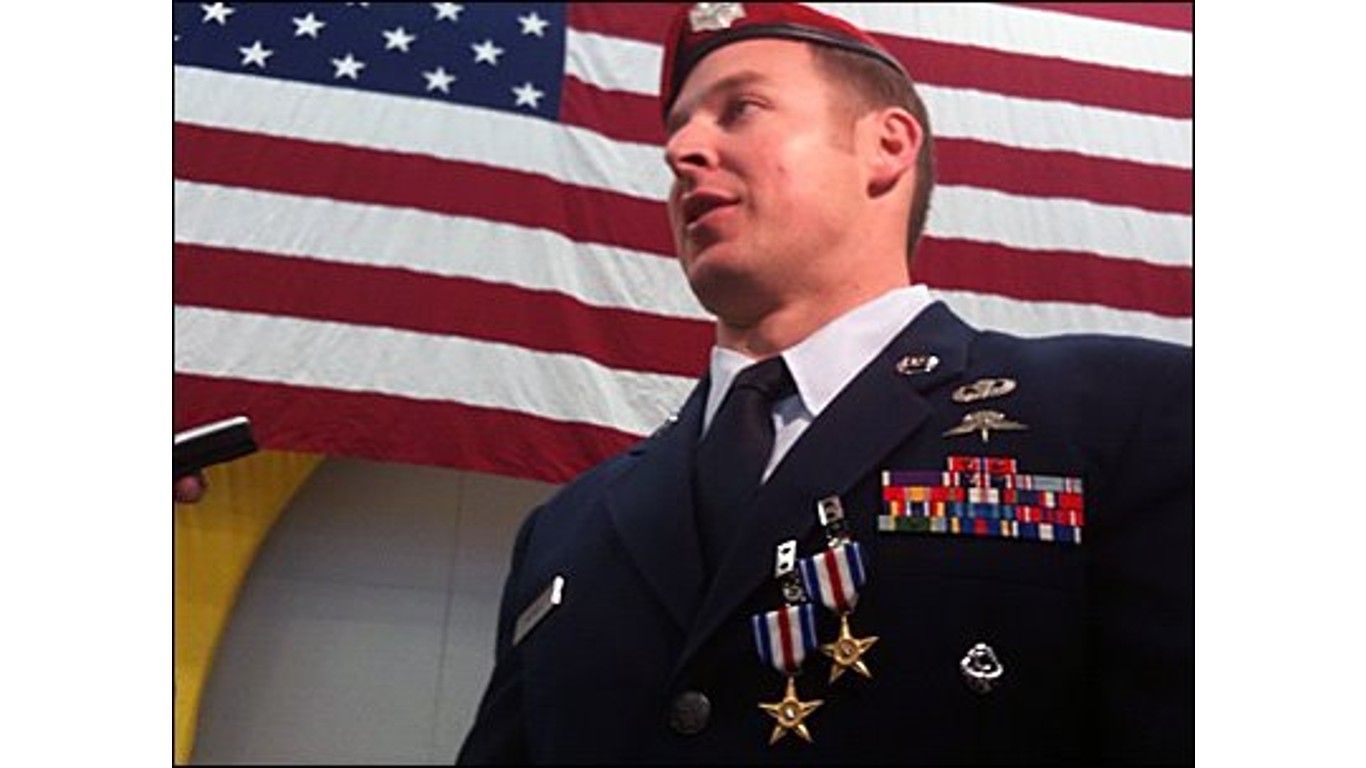
Sean Harvell
> Rank: Staff Sergeant
> Military branch: Air Force
> Served in: Afghanistan
> Medals of valor: Two Silver Stars
Air Force Staff Sgt. Sean Harvell was a two-time recipient of the Silver Star. He earned the medals while he was deployed as a combat controller working with soldiers and Marines. On May 8, 2007, he helped dozens of troops escape an ambush. During the 10-hour firefight, Harvell helped direct a medevac helicopter to its landing zone and also coordinated air support. His official citation says he exposed himself to enemy fire as close as five meters (about 16 feet) and directed strafing runs within just 45 feet of his position. Heroism in Afghanistan gave way to tragedy in America. In 2016, Harvell drowned near his home in Long Branch, Calif. (Five years earlier, his brother, Staff Sgt. Andrew Harvell, was killed in Afghanistan in 2011 when his helicopter was shot down.)
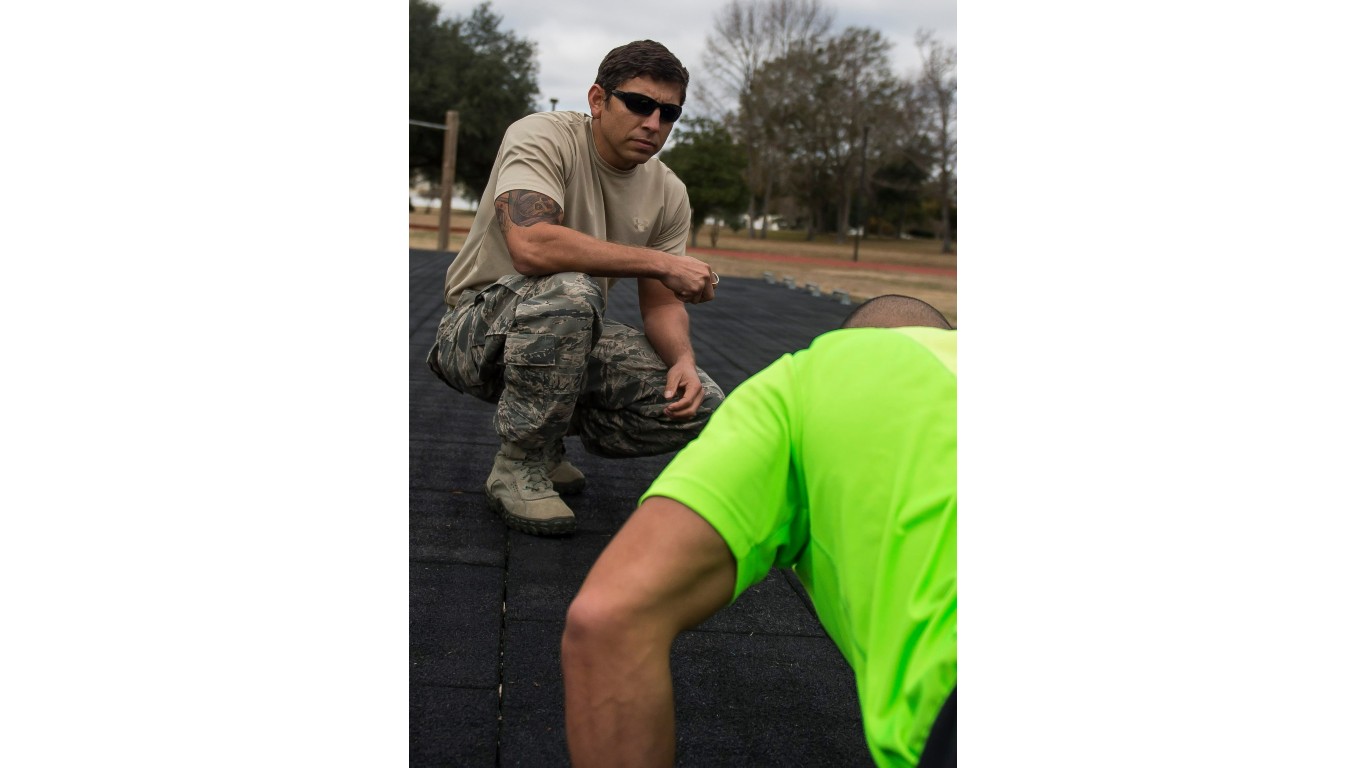
Ismael Villegas
> Rank: Tech Sergeant
> Military branch: Air Force
> Served in: Afghanistan
> Medals of valor: Two Silver Stars
Ismael Villegas served in the Air Force from 1997 to 2020. He was a joint terminal attack controller with a U.S. Army Special Forces team on Sept. 24, 2009, in Bagh Khosak, Afghanistan, when he distinguished himself in combat and earned his first Silver Star. His three-man team was clearing explosives from the roadside when they were ambushed by enemy fighters using remote-controlled explosive devices and heavy machine gun fire. With his teammates pinned down, Villegas sprinted about 200 meters across an uncleared minefield to get into a better fighting position. He returned fire while calling in air support, which routed the enemy and spared the lives of Villegas’ teammates. He earned his second star during action from Feb. 6-24, 2011. Villegas gathered intelligence on enemy positions, coordinated air strikes, and pulled a wounded teammate to safety.
[in-text-ad-2]
Ted C. Westmoreland
> Rank: Master Sergeant
> Military branch: Army
> Served in: Iraq
> Medals of valor: Two Silver Stars
Ted C. Westmoreland was a medic with U.S. Army Special Forces and earned his two Silver Stars in two different countries. He earned the first one on July 25, 2003, shortly after the invasion of Iraq, when his unit assaulted a building that held two of the most wanted targets in Iraq at the time. During the ensuing firefight, Westmoreland avoided enemy fire to save the lives of his teammates. Then in operation in Afghanistan from Dec. 4 to Dec. 11, 2003, Westmoreland earned a second Silver Star on a mission behind enemy lines described in his citation as a “mass casualty incident.” Westmoreland’s citation credits him with saving numerous lives, both Americans and Afghans, despite being wounded and under enemy fire.
Thank you for reading! Have some feedback for us?
Contact the 24/7 Wall St. editorial team.